Test Animals Will Die if They Have Access to Continued Drugs
What is animal testing? Every year in the U.S., tens of millions animals suffer and die in chemical, drug, food, and product tests. Animals are used in medical training exercises and in huge numbers in government- and taxpayer-funded curiosity-driven experiments at universities. They also suffer and die for classroom biology experiments and dissection, even though modern, non-animal methods have repeatedly been shown to have more educational value and save schools money.
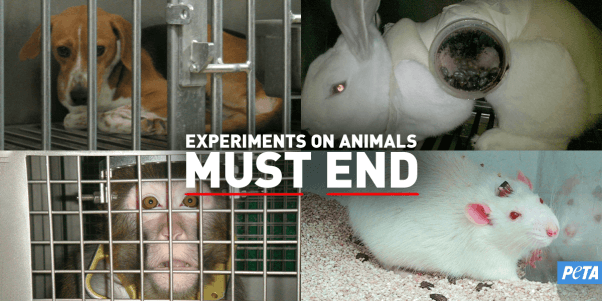
Studies published in prestigious medical journals have repeatedly shown that experiments on animals waste animals' lives and precious resources because they aren't even relevant to human health. They don't contribute meaningfully to medical advances, and many are performed simply so that experimenters have something to publish about, offering no promise for curing illnesses.
Check out these facts about animal testing to learn more:
What Is Animal Testing?
Animal testing refers to the practice of performing unnatural and often painful experiments on animals held captive in stressful laboratory settings, often in the misguided belief that the results of the tests will be applicable to humans. At the conclusion of most experiments, the subjects—millions of them per year—are killed.
Which Animals Are Used in Tests?
Right now, millions of mice, rats, rabbits, monkeys, cats, dogs, fish, and other animals used in tests are locked inside cages in laboratories across the country. They languish in pain, suffer from extreme frustration, ache with loneliness, and long to be free.
Exact numbers aren't available, because mice, rats, birds, and cold-blooded animals—who make up more than 99% of animals used in experiments—are not protected under the federal Animal Welfare Act and their numbers don't even have to be reported. These sentient beings aren't even defined as "animals" under this act, which is the only federal law offering any sort of protection for animals.
Is Animal Testing Cruel?
Experimenting on animals is not only cruel but also completely unnecessary and unethical. The unnatural and stressful conditions of captivity make it even more unlikely that the results of animal tests can be applied to humans.
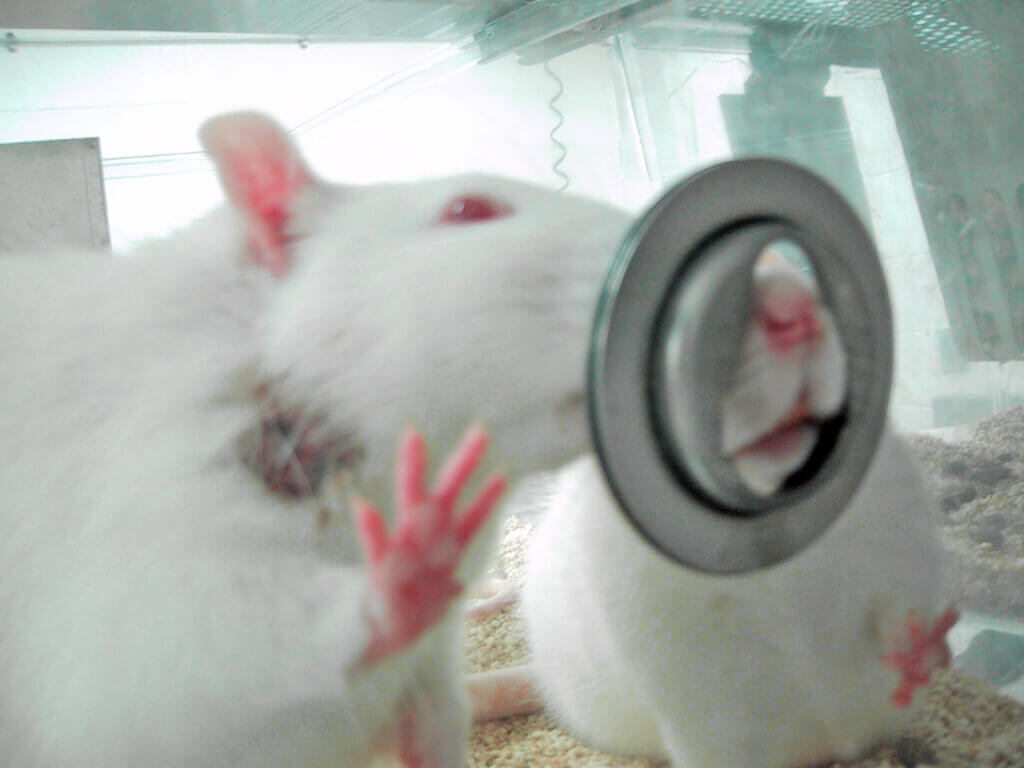
Published studies show that 90% of our fellow primates who are used in laboratories exhibit abnormal behavior patterns caused by the psychological stress, social isolation, and confinement to barren enclosures that they're forced to endure. Many go insane, rocking back and forth, pacing endlessly inside cages, and doing repetitive motions such as back-flipping. They even engage in acts of self-mutilation, including tearing out their own hair and biting their own flesh.
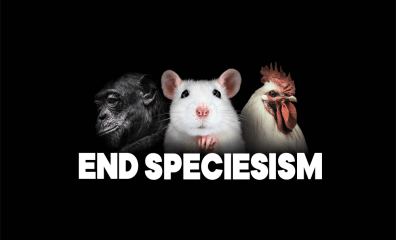
Experiments on Animals at Colleges and Universities
The federal government and many health charities waste billions of dollars—including money from U.S. taxpayers—on animal experiments at universities and private laboratories, instead of supporting promising non-animal studies that could actually benefit humans.
Right now, animals in university laboratories are being mutilated, poisoned, deprived of food and water, immobilized in restraint devices, infected with painful and deadly diseases, burned, electrocuted, irradiated, addicted to drugs, and psychologically tortured. None of the thousands of experiments conducted on animals every year at universities are required by law.
You can join PETA in opposing these cruel and useless tests by taking action today:
Are Tests on Animals Legal?
Yes. U.S. law allows for animals to be burned, shocked, poisoned, isolated, starved, drowned, addicted to drugs, and brain-damaged. No experiment, no matter how painful or trivial, is prohibited—and painkillers are often not required. Even when alternatives to the use of animals are available, the law doesn't require that they be used—and often, they aren't.
How Does PETA Help Animals Used in Experiments?
PETA's vivid demonstrations and undercover investigations alert the public to wasteful, cruel, and useless experiments on animals, often ones occurring right under their noses. We actively campaign to get animals out of laboratories—and win. Check out a list of our latest victories.

The PETA International Science Consortium Ltd. works with agencies around the world to reduce the number of animals used in tests. PETA's scientists are at the forefront of humane and modern methods, promoting groundbreaking non-animal tests and eliminating requirements for experiments on animals by sharing existing research and data with companies and governments.
PETA scientists sat in as the U.S. Environmental Protection Agency made the historic announcement that it would end toxicity tests on mammals—something we've pushed the agency to do for nearly 20 years.
 USEPA photo by Eric Vance
USEPA photo by Eric Vance Which Cosmetics and Personal-Care Companies Don't Conduct Tests on Animals?
Neither the U.S. Food and Drug Administration nor the U.S. Consumer Product Safety Commission requires that cosmetics be tested on animals. There are already sufficient safety data and many non-animal methods available to make animal testing obsolete for these products.
Thankfully, most cosmetics companies have already banned tests on animals as a result of PETA's campaigns and consumer pressure. However, some sell products in countries where tests on animals are required. PETA's searchable Global Beauty Without Bunnies list makes it easy to find cruelty-free companies that have committed to never testing their cosmetics or household cleaning products on animals—here or abroad.
PETA also works with large food and beverage companies to end the practice of testing ingredients on animals in order to make health claims about products. Dozens of companies have banned all tests on animals for this purpose. You can rest assured knowing that the delicious vegan foods you'll find recommended in our Living section come from such companies.
What Percentage of Animal Tests Fail?
Studies published in prestigious medical journals have repeatedly shown that animal experimentation wastes precious resources and lives. More than 90% of basic research , most of which involves animals, fails to lead to treatments for humans. And more than 95% of new drugs that test safe and effective in animals go on to fail in human clinical trials. Yet around the world, millions of animals continue to be used in experiments and then killed.
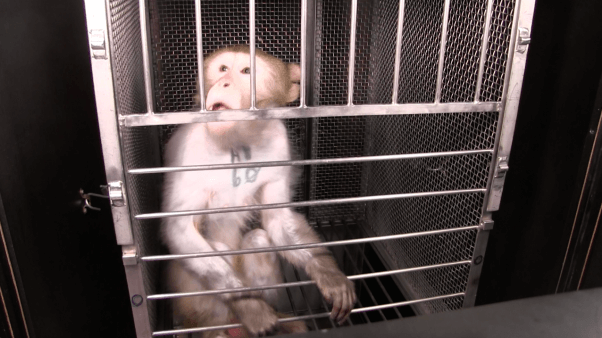
History of Animal Testing and Animal-Free Medical Advances
Between 1900 and 2000, life expectancy in the U.S. increased from 47 to 77 years. Although animal experimenters are often credited with this progress, medical historians report that improved nutrition and sanitation as well as other behavioral and environmental factors—rather than anything learned from tormenting animals—are responsible for this increased longevity.
Epidemiological studies have led to some of the most important breakthroughs, including the discovery of the relationship between cholesterol and heart disease and between smoking and cancer, the development of X-rays, and the isolation of the AIDS virus.
While experiments on animals have been conducted during the course of some important discoveries, this doesn't mean that they were vital to the discovery of human-health treatments or that the same discoveries wouldn't have been made anyway without using animals.
Take a trip through time using PETA's interactive timeline, "Without Consent," to learn about almost 200 stories of twisted animal experiments from the past century.
Without Consent: A Century of Animal Experiments
Animal Testing Alternatives : Can Science Progress Without Tests on Animals?
Today—because experiments on animals are cruel and expensive and their results are generally inapplicable to humans—the world's most forward-thinking scientists are developing and using methods for studying diseases and testing products that replace animals and are actually relevant to human health.
Alternatives to animal testing include sophisticated tests using human cells and tissues (also known as in vitro methods), organs-on-chips, advanced computer-modeling techniques (often referred to as in silico models), and studies with human volunteers. These and other non-animal methods are humane, and they aren't hindered by species differences that make applying animal test results to humans difficult or impossible. Also, they usually take less time and money to complete.
Why Should Animal Testing Be Banned?
In addition to the many reasons listed above, testing on animals is wasteful, violent, unproductive, and speciesist. Animals are not ours to use for experiments. They have their own wants, interests, needs, and feelings—independent of what purpose they might serve humans. In short, they are their own people and they don't consent to being tortured and killed in laboratories.
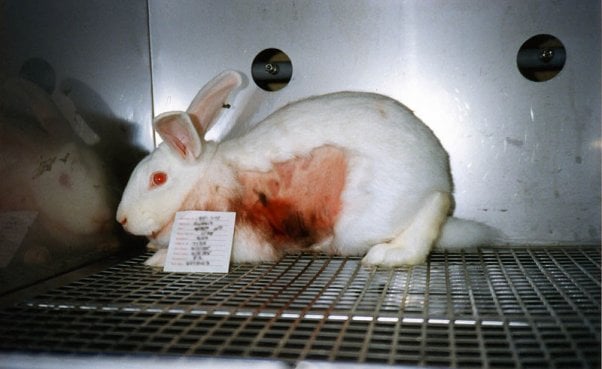
Human wellness is more likely to be advanced by devoting resources to the development of non-animal test methods, which have the potential to be cheaper, faster, and more relevant to our bodies and health.
Support PETA's Efforts to Help Animals in Laboratories
PETA makes it easy to take action to help animals suffering in experiments. Check out the page below, which makes it quick and easy to urge experimenters to end tests on animals:
fairleyhicithove1960.blogspot.com
Source: https://www.peta.org/features/animal-testing-facts-questions-answers/
0 Response to "Test Animals Will Die if They Have Access to Continued Drugs"
Post a Comment